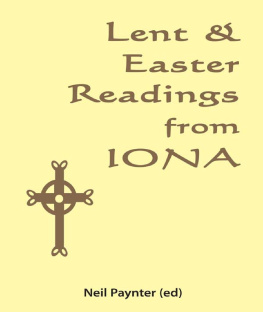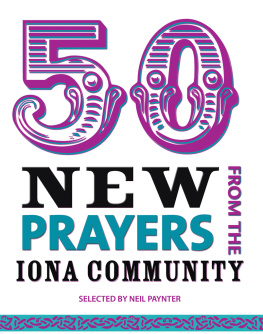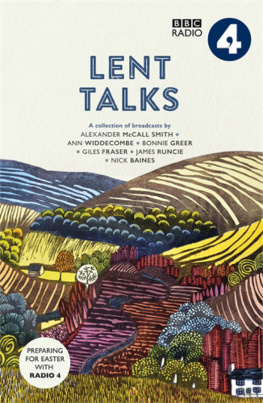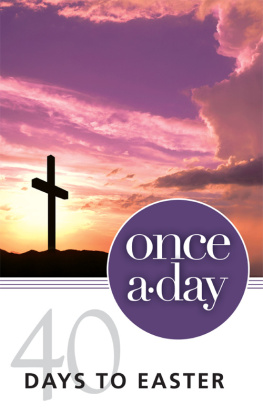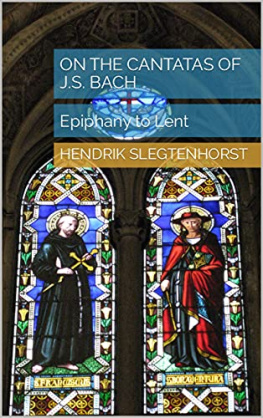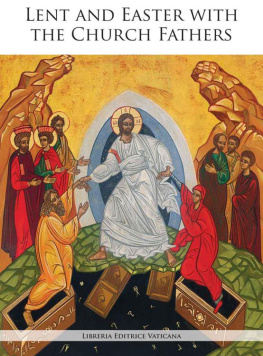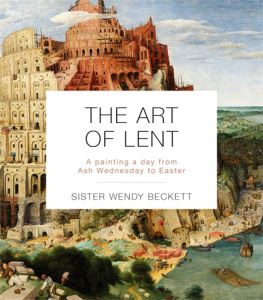Neil Paynter - Lent & Easter Readings from Iona
Here you can read online Neil Paynter - Lent & Easter Readings from Iona full text of the book (entire story) in english for free. Download pdf and epub, get meaning, cover and reviews about this ebook. year: 2001, publisher: Wild Goose Publications, genre: Religion. Description of the work, (preface) as well as reviews are available. Best literature library LitArk.com created for fans of good reading and offers a wide selection of genres:
Romance novel
Science fiction
Adventure
Detective
Science
History
Home and family
Prose
Art
Politics
Computer
Non-fiction
Religion
Business
Children
Humor
Choose a favorite category and find really read worthwhile books. Enjoy immersion in the world of imagination, feel the emotions of the characters or learn something new for yourself, make an fascinating discovery.
- Book:Lent & Easter Readings from Iona
- Author:
- Publisher:Wild Goose Publications
- Genre:
- Year:2001
- Rating:5 / 5
- Favourites:Add to favourites
- Your mark:
- 100
- 1
- 2
- 3
- 4
- 5
Lent & Easter Readings from Iona: summary, description and annotation
We offer to read an annotation, description, summary or preface (depends on what the author of the book "Lent & Easter Readings from Iona" wrote himself). If you haven't found the necessary information about the book — write in the comments, we will try to find it.
Lent offers an opportunity to see the world afresh. This book of readings from members and staff of the Iona Community aims to help us reappraise our lives during the period leading up to Easter.
Lent & Easter Readings from Iona — read online for free the complete book (whole text) full work
Below is the text of the book, divided by pages. System saving the place of the last page read, allows you to conveniently read the book "Lent & Easter Readings from Iona" online for free, without having to search again every time where you left off. Put a bookmark, and you can go to the page where you finished reading at any time.
Font size:
Interval:
Bookmark:

Lent & Easter Readings from IONA
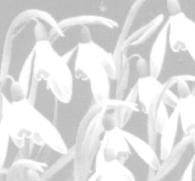
Neil Paynter (ed)

WILD GOOSE PUBLICATIONS
Readings the individual contributors
Compilation 2001 Neil Paynter
Published 2002, Reprinted 2003, 2004, 2008 by
Wild Goose Publications,
4th Floor, Savoy House, 140 Sauchiehall St, Glasgow G2 3DH,UK,
the publishing division of the Iona Community. Scottish Charity No. SC003794.
Limited Company Reg. No. SC096243.
www.ionabooks.com
ePub:ISBN 978-1-84952-133-8
Mobipocket:ISBN 978-1-84952-134-5
PDF:ISBN 978-1-905010-70-7
Cover design 2001 Wild Goose Publications
The publishers gratefully acknowledge the support of the Drummond Trust,
3 Pitt Terrace, Stirling FK8 2EY in producing this book.
All rights reserved. Apart from reasonable personal use on the purchasers own system and related devices, no part of this document or file(s) may be reproduced or transmitted in any form, by any means, without the prior written permission of the publisher.
Non-commercial use:
The material in this document may be used non-commercially for worship and group work without written permission from the publisher. Please make full acknowledgement of the source e.g. The Iona Community, from Lent and Easter Readings, published by Wild Goose Publications.
Where a large number of copies are made, a donation may be made to the Iona Community via Wild Goose Publications, but this is not obligatory.
Commercial use:
For any commercial use of this material, application in writing must be made to Wild Goose Publications at the above address.
Neil Paynter has asserted his right in accordance with the Copyright, Designs and Patents Act, 1988, to be identified as the author of this work.
To companions on Iona
19972001
With love and thanks

George MacLeod, the Founder of the Iona Community, once wrote:
The Bible is the most profound dramatisation of you The historic story of Christ, the outside story of Christ, suddenly emerges as the inner story of yourself and its this inner story, this inner parallel, that really makes the Bible inspired, so that to your condition it becomes the living Word of God.
There is always the temptation to read these words and, indeed, to read the Bible, as being about the dramatisation of me, and Christs story as the inner story of myself. And it is precisely because we can discern in the scriptures our own personal experiences of loss and love and betrayal, of suffering and hope, mediated to us through the experiences of other people in other times and places, that their stories, and above all the Christ story, have such power to comfort and encourage, to chasten and challenge and inspire us. We identify with the dramatis personae, we read ourselves into the text.
But if we restrict ourselves to this kind of individual reading, we run the risk of missing the point completely. Though we each have our moments of feeling that no one suffers quite like me, it is just then that we are actually more like everybody else than we care to admit. For the stories, and the story, are actually the dramatisation of us, the inner story of ourselves, humankind in all our diversity and similarity; and although the via crucis, the way of the cross, may take as many forms as the relentless parade of human misery we see on the nightly news, the experience of loss and love and betrayal, of suffering and hope, is universal.
It is in solidarity with this corporate experience that people enter into Lent, Holy Week and Easter observation. In prayer, reading, meditation and solitude, followers of Jesus may practise a measure of interior withdrawal and reflection, in which to look with some honesty at the wilderness places in our hearts and lives, to remember and name our own temp tations and frailties and to hear again the call to conversion, to turning as the prodigal son did and heading for home. But we do so in the company of others. The great liturgical drama of Passiontide and Easter worship is a vivid reminder of the us. It locates us firmly in our humanity, inviting us to discover that it is only in the sharing of our human vulnerability and frailty that our potential for resurrection is to be found.
In his journal about a Lenten period in his monastery, the American contemplative and peacemaker Thomas Merton wrote:
Brother B. a Mexican from Texas: what he thinks might be faults are in reality the wounds that come from being poor. The poor man is, and remains vulnerable. How can the really poor, the really hurt survive in a place like this? We are not so vulnerable, and we wound others, even when we are being good, erhaps especially then.
It is a hard thing to admit the truth of this, to recognise the extent to which violence, injustice, oppression and cruelty are most powerful when their perpetrators are most convinced of their own righteousness, their own justification. We who are habitually scandalised by everyone except our selves see this more clearly in others, less so in our own small justifications. The Easter experience is a journey towards recognising our complicity but also to seeing the way beyond it.
O Christ our enlightener,
Once and for all,
you broke the link between suffering and punishment,
erased the line between deserving and undeserving
and invited the unseeing to open their eyes to the truth about themselves.
Doing this, you revealed yourself,
became vulnerable.
Preserve us from the defendedness that makes us vicious,
give us insight to see the structures of injustice by which we profit,
and grace to cherish all people in our vulnerability,
knowing that we all live within your love.
This book of readings shares something of the Lent and Easter story of us an us which is both Irish nationalist and Ulster Unionist, both American and Afghan, both Palestinian and Israeli, which is Moslem and Jewish and Christian and Buddhist and Hindu and atheist. In following Jesus on the way of the cross, we come face to face with the tragedy that Palestinians and Israelis have so much in common their longing for that shalom or salaam which are only a syllable away from each other (Palm Sunday) and yet that a vast, hostile distance of injustice, fear, racism, violence and death is contained within that single syllable. There are so many single syllables of distance, and yet so many people who are closer than breathing in their longing for love, hope, new life. What, or who, can span the distance? In a world bleeding with images of crucifixion, where is resurrection?
As the Easter readings in the book powerfully reiterate, perhaps one step is the recognition that Christ is also mocked in the little children jeered and threatened on their way to school, and Christ is also crucified in the Palestinian schoolgirl shot in her classroom, in the Israeli baby blown up by the car bomb, in the New York workers whose building was turned into a lethal weapon against them, and that Mary still weeps in the Afghan mother whose three children have just been killed, and in the wife waiting for the fire fighter who never came home. To recognise that is to recognise that it was our common humanity that went to the cross and it is only in our common humanity that we can be raised.
Font size:
Interval:
Bookmark:
Similar books «Lent & Easter Readings from Iona»
Look at similar books to Lent & Easter Readings from Iona. We have selected literature similar in name and meaning in the hope of providing readers with more options to find new, interesting, not yet read works.
Discussion, reviews of the book Lent & Easter Readings from Iona and just readers' own opinions. Leave your comments, write what you think about the work, its meaning or the main characters. Specify what exactly you liked and what you didn't like, and why you think so.

